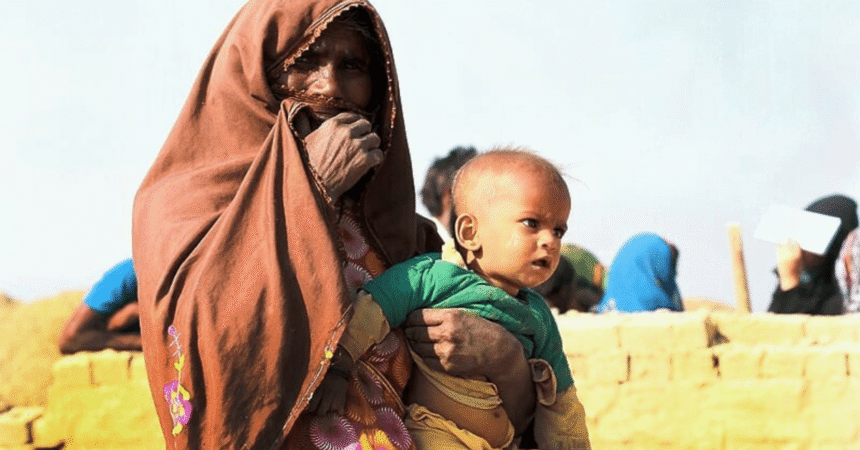In a landmark event reflecting a commitment to social reform, the Sindh government has announced a series of progressive laws aimed at safeguarding the rights of women and children. This initiative, unveiled during the inauguration of UNICEF’s Aawaz II Program, is seen as a critical step towards addressing pressing social issues within the province. The ceremony, which took place at a local hotel in Karachi, was graced by Chief Secretary Asif Haider Shah and numerous dignitaries, signaling a robust governmental resolve to empower vulnerable communities.
Legislative Advancements
Chief Secretary Asif Haider Shah emphasized that the Sindh government has enacted over 22 laws specifically focused on protecting women and children. This legislative package aims to create a safer environment, providing legal frameworks that promote equality and justice.
crossorigin=”anonymous”>Key Legislative Provisions
Among the significant legislative advancements is the elimination of fees for birth registration. Birth registration is not only a fundamental right but also a critical step in ensuring that children have access to legal protections and social services. By removing financial barriers, the Sindh government aims to increase registration rates among marginalized communities, ensuring that every child has the right to recognition and protection under the law.
Empowering Flood-Affected Women
The recent floods in Sindh have exacerbated vulnerabilities among already marginalized populations. In response, Shah announced the construction of homes for 2 million flood-affected individuals, with a unique provision: ownership rights will be granted to women. This initiative is not merely about providing shelter; it is a strategic move towards economic empowerment and stability for women, who are often disproportionately affected by disasters.
By granting property rights to women, the Sindh government recognizes their role as heads of households and decision-makers, thereby fostering an environment where women can contribute to their families’ welfare and local economies.
crossorigin=”anonymous”>New Laws for Domestic Workers
In a significant development for labor rights, a new law protecting the rights of domestic workers is in the pipeline. Domestic work, while essential, has historically been undervalued and largely unregulated, leaving workers vulnerable to exploitation. This forthcoming legislation aims to improve their working conditions, ensuring fair wages and access to social security benefits.
The announcement of this law reflects a growing recognition of domestic work as legitimate labor deserving of rights and protections. By formalizing these roles, the Sindh government aims to uplift the social and economic status of domestic workers, who often belong to the lower socio-economic strata.
Addressing Child Marriage
Child marriage remains a significant challenge in Pakistan, with alarming rates of minors being wed before they reach adulthood. The Sindh government has prioritized the strict enforcement of the Child Marriage Law, which aims to protect minors from early marriages and the associated risks to their health and education.
As part of this initiative, the government plans to increase awareness among communities about the legal ramifications of child marriage. By engaging local leaders and utilizing media campaigns, the Sindh government hopes to change societal attitudes towards this practice, fostering a culture that values education and empowerment for girls.
crossorigin=”anonymous”>The Inclusive City Initiative
In a bid to foster inclusivity, Chief Secretary Shah announced plans for the development of an “Inclusive City” covering 75 acres in Karachi. This ambitious project is designed to create an environment that caters specifically to persons with disabilities, ensuring they have access to essential services, public spaces, and opportunities for social participation.
Features of the Inclusive City
The Inclusive City will incorporate various elements to facilitate the participation of individuals with disabilities. Features will include wheelchair-accessible public transportation, specially designed recreational areas, and housing units that accommodate diverse needs. This model city aims to serve as an example for future urban planning initiatives across Pakistan, promoting inclusivity as a core value.
By prioritizing the needs of persons with disabilities, the Sindh government is taking a significant step towards creating a society where all individuals can participate fully and equally.
The Aawaz II Program
The Aawaz II Program, with a substantial budget of €7.4 million, is aimed at addressing several critical issues: child marriages, gender-based violence, and child protection. This initiative seeks to promote the inclusion of marginalized communities, particularly girls and minority groups, in essential services like digital birth registration.
Goals and Objectives
The Aawaz II Program is not only about legal frameworks but also about implementing community-based solutions to combat social issues. Key goals of the program include:
- Reducing Child Marriages: Through awareness campaigns and community engagement, the program aims to educate families about the detrimental effects of child marriage and promote alternatives, such as education for girls.
- Combating Gender-Based Violence: The program will establish support systems for victims of gender-based violence, including hotlines and counseling services, while also working to change societal norms that perpetuate violence against women.
- Child Protection Initiatives: A focus on safeguarding children’s rights will involve collaboration with local organizations to monitor and report abuses, ensuring that children are protected from exploitation and harm.
Community Engagement and Support
The successful implementation of these initiatives relies heavily on community engagement and support. The Sindh government recognizes that collaboration with local leaders, NGOs, and international partners is essential to create sustainable change.
Involvement of Civil Society
Civil society organizations play a crucial role in raising awareness and advocating for the rights of women and children. The government’s partnership with these organizations will facilitate grassroots mobilization, ensuring that marginalized communities are not only beneficiaries but also active participants in the reform process.
Role of International Partners
The presence of international partners, such as UNICEF and the British High Commission, signifies a collaborative approach to addressing social issues. These partnerships provide not only funding but also technical expertise and resources, enhancing the effectiveness of the Sindh government’s initiatives.
Future Outlook
The announcements made during the Aawaz II Program launch signal a robust commitment from the Sindh government to tackle pressing social issues and implement reforms that benefit women and children. However, the effectiveness of these initiatives will depend on sustained political will, adequate funding, and active community involvement.
Monitoring and Evaluation
As these initiatives roll out, it is crucial to establish robust monitoring and evaluation frameworks. This will involve setting clear benchmarks and indicators to assess progress and make necessary adjustments to strategies as needed. Continuous feedback from beneficiaries will also be essential to ensure that the programs are meeting their intended goals.
The Sindh government’s progressive initiatives reflect a growing recognition of the importance of women’s and children’s rights in Pakistan. The enactment of new laws, the removal of barriers to essential services, and the establishment of inclusive environments are all steps in the right direction.
The Aawaz II Program, alongside the government’s broader efforts, has the potential to transform the landscape for vulnerable populations in Sindh. By prioritizing gender equality and child welfare, the Sindh government is laying the groundwork for a more just and equitable society.
crossorigin=”anonymous”>
SindhGovernment #WomensRights #ChildProtection #AawazII #UNICEF #SocialReform #GenderEquality #DomesticWorkersRights #InclusiveCity







